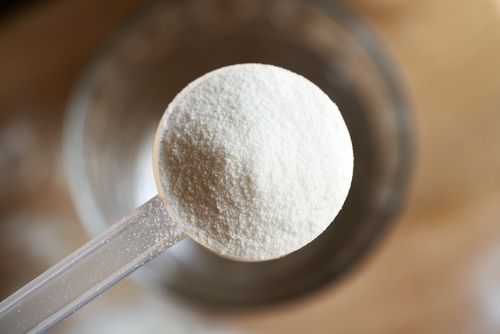
Who Stole My Mojo? Decoding the Energy Black Hole
- Jan 6, 2025
Tired of feeling tired? Join the club. We all have those mornings when getting out of bed feels like an Olympic sport. Or the afternoons when just the thought of hitting the gym makes you want to hit the snooze button. Your culprit could be anything - a hectic schedule, lousy sleep, or the aftermath of Wolverines in your tummy masquerading as the flu. But loading up on sugar-laden foods and drinks for a quick perk-up is worse than re-watching that dreadful movie remake… we’re looking at you Hollywood - the ‘crash and burn’ is inevitable. Fret not, science has your back, promising safe and effective ways to boost your energy and diminish fatigue. Both for those sudden energy drops and the long haul.
Firstly and perhaps, surprisingly - water is your secret weapon against fatigue. Before you roll your eyes, did you know that mild dehydration is a frequent proven culprit behind energy dips? Water is the superhero your body needs, ensuring everything is ticking along as it should. From supporting athletic prowess to fine-tuning your alertness, water is every Usain Bolt and Einstein's sidekick. How much water should you guzzle down? That depends on variables such as your age, activity levels, health, and how much you sweat out Angelina’s chicken curry. For guys, aim for 15.5 cups a day and ladies, around 11.5.
Next up in our anti-fatigue lineup is our old friend, walking. Screw the elevator and take the stairs - those fuzzy, happy, bounce-in-your-step endorphins like serotonin and dopamine aren’t going to trigger themselves. The more steps you clock, the better you feel physically and mentally, with a minimum of 150 minutes per week suggested. Better still, swap those boring office corridors for the tranquility of nature. It’s a mood and energy booster par excellence.
Combat energy lows with smart food choices. Substitute sugar-packed foods with whole foods boasting protein, fiber, and a low glycemic index. Getting them on your plate means a more measured sugar absorption, reducing energy zappers. So, say a cheery goodbye to energy crashes post bingeing on your kid's gummy bear stash. High-energy snack options include:
The power nap isn't called so just to sound cool; it actually reins in sleep deprivation while invigorating your physical and mental acumen. Aim for a nap of 20 to 30 minutes. Anything longer might flip you into sleep monster mode and ruin your nighttime sleep.
Time to get moving and get that energy pumping. Moderate-intensity exercise is your ticket to feeling more energized over time. Even a single 20 to 40-minute sweat fest can provide a significant pick-me-up. Exercise improves cellular mitochondria function, spikes oxygen and nutrient delivery via enhanced blood flow, and promotes quality shut-eye.
No time or willpower for a full workout? Get stretching. Even a brisk 10-minute stretch can improve energy levels by boosting blood flow. Research indicates that incorporating stretching into your workday improves overall vitality and mental health, reducing fatigue, body pain, and anxiety.
And now we get to caffeine - that lively little molecule that blissfully kickstarts your brain and keeps the sleep monster at bay. It's also been seen to enhance exercise performance. But chugging down espressos like there's no tomorrow may backfire, particularly if enjoyed a little too close to bedtime. To prevent your caffeine fix from messing with your sleep quality, rejig your caffeine schedule. Aim to cut off caffeine consumption six to eight hours before you tuck in. Being generous with caffeine today might see your energy levels drowning tomorrow.
Caffeine can have its downsides, especially if you've overdone it. Along with messing with your sleep and causing those irritating headaches, caffeine overdose might push you into anxiety city. Regular caffeine consumers warning! Abstinence can send you into full-fledged withdrawal, bringing its own set of discomforts like headaches, fatigue, and anxiety.
And let's not forget stress – that insidious enemy of all things good. Long-term stress wrecks havoc on your body, nose-diving your energy levels and dialing up fatigue. Strategies to keep stress in check include:
There's no magic pill here, maximizing your energy is a long haul game requiring commitment to a healthy lifestyle. The perfect mix? A balanced diet, ample hydration, exercise, breakfast, and sprinkling your day with energy-boosting breaks. Consistency is key here, not just for an emergency power-up but to improve your overall energy levels in the long run. If you find your energy continuously circling the drain for six months or more, it may indicate chronic fatigue due to lifestyle factors or an underlying medical condition. In such cases, seek the advice of a healthcare provider.
Sometimes, we all need that extra oomph to power through the day. When the energy vamps come calling, opt for legitimate, science-supported methods to reignite your energy. Simple remedies like hydrating, walking, stress management, healthy snacking, and more make the cut. Continued practice of these healthy habits can fuel sustained energy levels. If you’re consistently battling low energy, it’s time to see your doctor.






